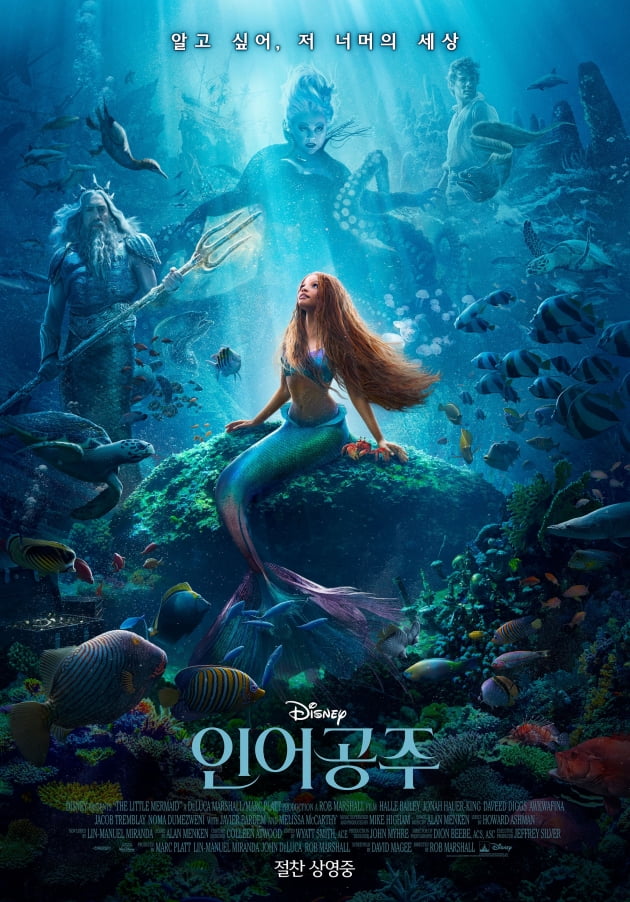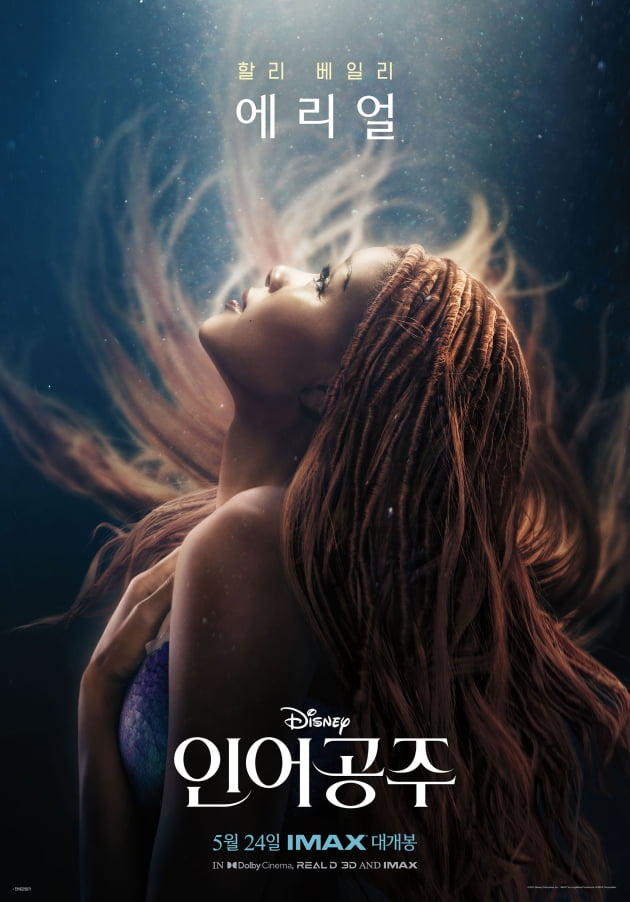MOVIE
'The Little Mermaid', the real reason for the harsh criticism

Choi Ji-ye, a reporter from TenAsia, tells the story of the movie. He analyzes every aspect of the film through vivid coverage of the scene, and writes with sharp perspectives in a fun way.
It is a mistake to think that PC attention is the only problem. There is another reason why Korean audiences criticize 'The Little Mermaid'.
'The Little Mermaid' (director Rob Marshall), which was released on the 24th, recorded results that fell far short of expectations, leaving a dark cloud over the box office. 'The Little Mermaid' sank to 4th place at the box office in its first weekend of release, falling behind 'Fast and Furious: Ride or Die' (1st place) and 'Guardians of the Galaxy: Volume 3' (3rd place). In particular, 'Criminal City 3', which held a large-scale pre-paid preview before its release, is proudly ranked in second place, pushing 'The Little Mermaid' deeper into the abyss.
'The Little Mermaid' started with controversy from its birth due to 'blackwashing' and 'PCism' (political correctness), which were predicted from the time black singer and actress Halle Bailey was cast in the role of Ariel.
The black Ariel, played by Halle Bailey, distorted the image of Ariel in the original animation 'The Little Mermaid' (1989), leaving many Disney fans with scars and disappointment. In addition, the ending scene in which humans and mermaids of all races are displayed together is evaluated as showing the extreme of Disney PCism, 'We are all one'. There is a joke that this ending is like a scene from an advertisement where fashion brand Benetton gathered people of all races under the concept of 'diversity'.
If 'The Little Mermaid' is worth watching if you remove the 'blackwashing' and 'PCism' that caused the controversy, it is not. 'The Little Mermaid' made a brave decision to change Ariel to a black person, but the story was taken from the original without any transformation, but the flow of the narrative is so plain that there is no characteristic.

In addition, due to the low brightness of the film, Ariel's dark skin color is buried, making it difficult to see. In some communities, it is not uncommon to see reviews of a child who went to see 'The Little Mermaid' with his children and felt so dark and gloomy that he stopped watching and left the theater because he burst into tears. In addition, some say that Ariel's friends, Sebastian and Flounder, and other sea creatures are drawn too realistically to appeal to children who watch the movie.
What Korean audiences want from 'The Little Mermaid' is simple. The audience's expectation for this 'The Little Mermaid' is that they want to see how 'The Little Mermaid', which was made into a live-action musical film for the first time in 34 years, inherited and developed the essential message of the original work, and to meet Ariel in vivid memories.

As long as 'The Little Mermaid' belongs to the category of a commercial film, the audience evaluates the work. If it had a high degree of cinematic perfection and was literally fun, it would have been chosen by many audiences considering controversies such as 'blackwashing' and 'PC caution'. From this point of view, 'The Little Mermaid' failed to convince Korean audiences. Disney, which only insists on their own political correctness while destroying the cinematic essence, needs to look back on themselves first. The reason lies in the Korean audience's rating of 6.61 (based on 5/29 Naver Movies).
Jiye Choi, staff reporter at TenAsia wisdomart@tenasia.co.kr
